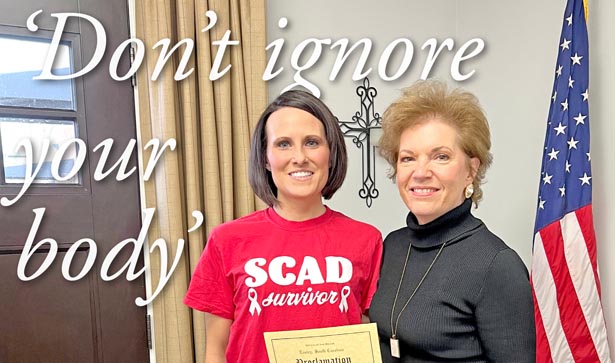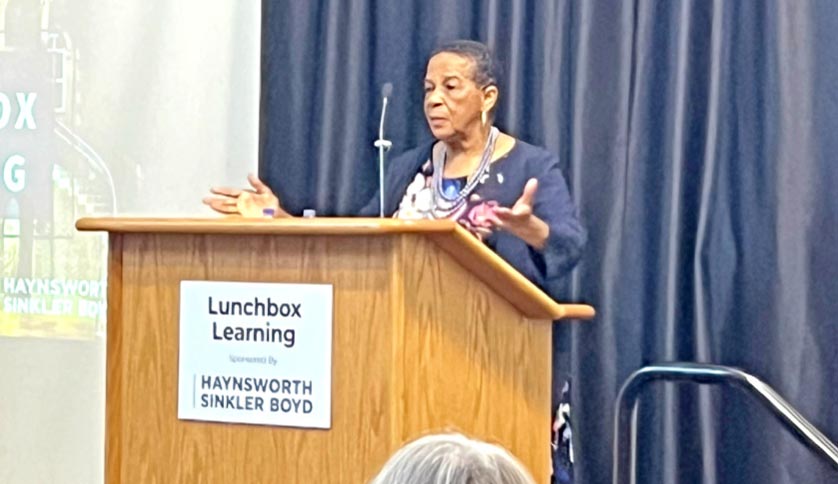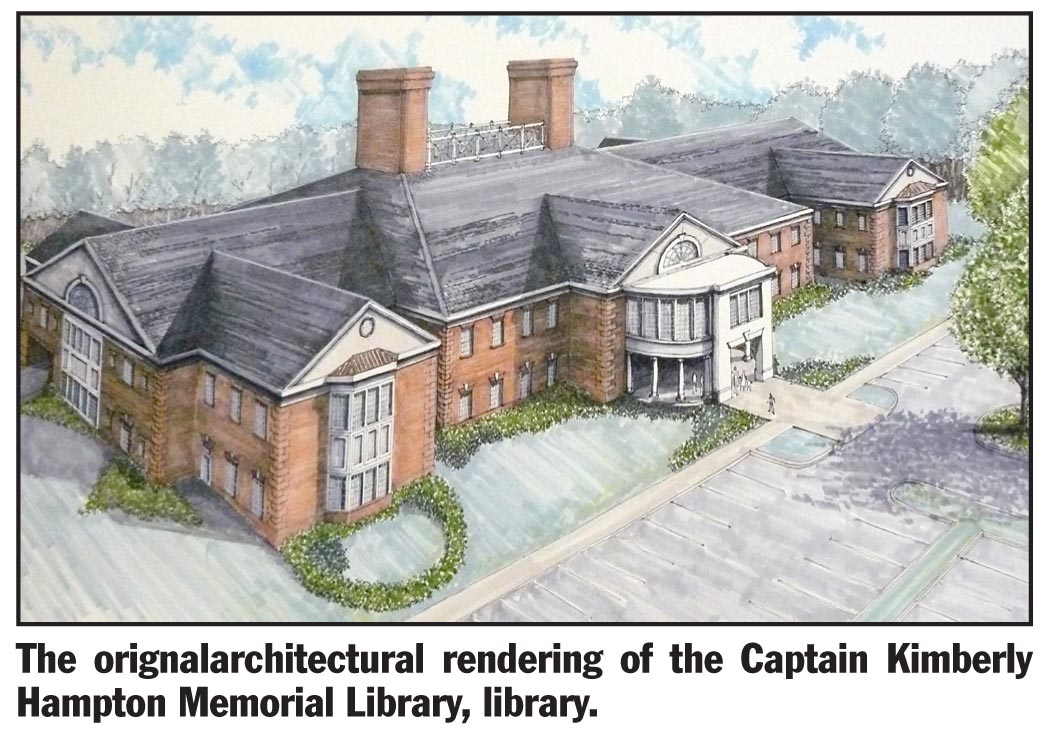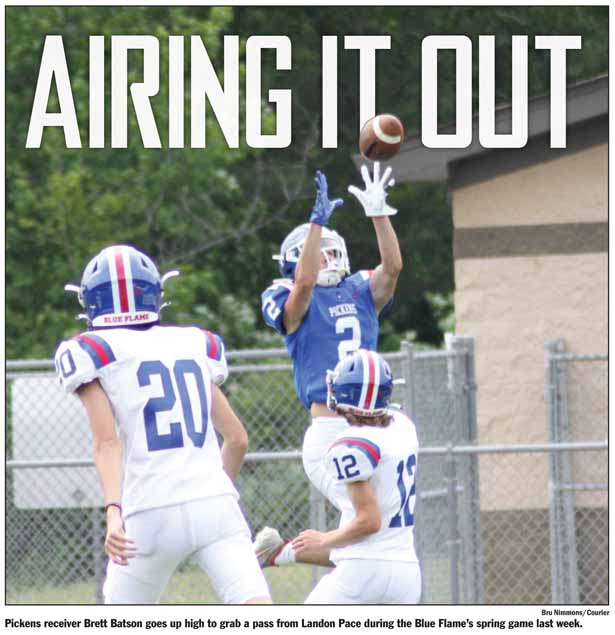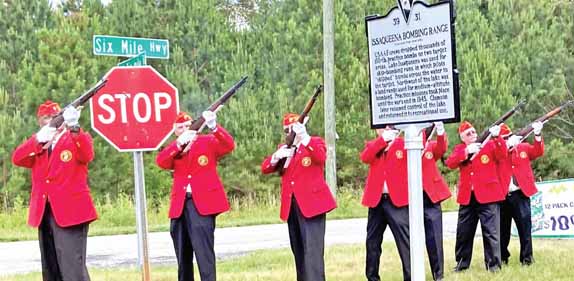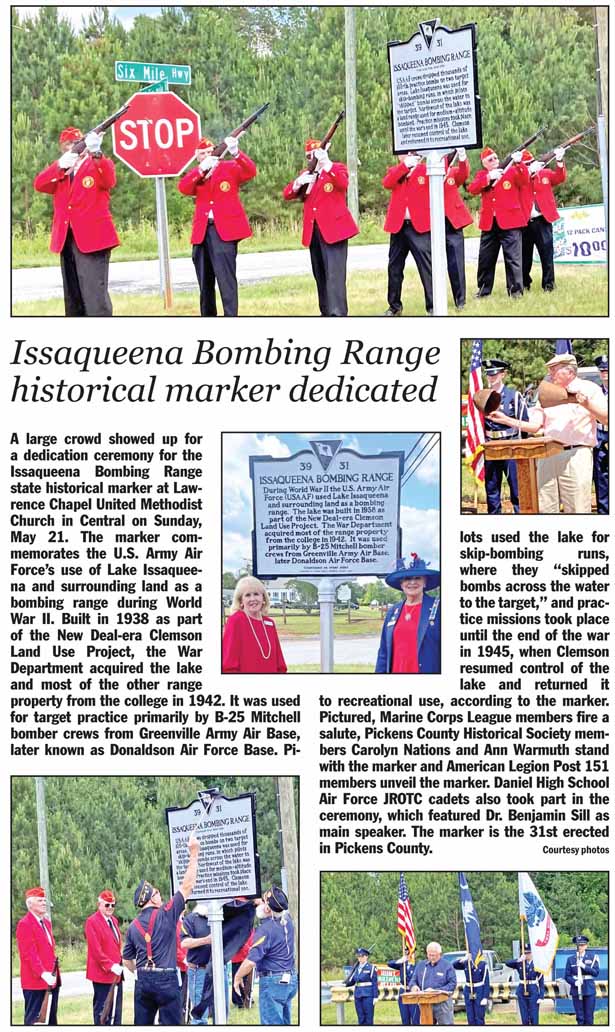Pair arrested in Clemson murder case
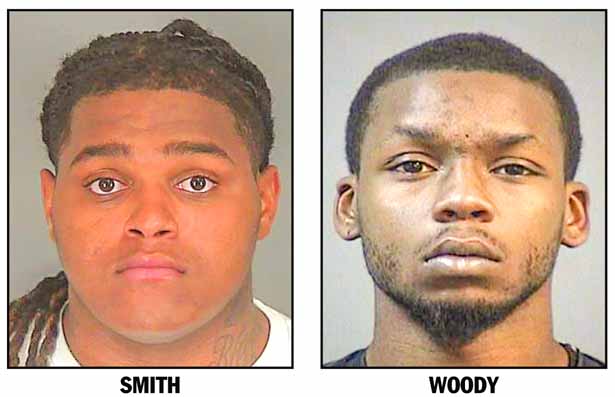
By Riley Morningstar
Courtesy The Journal
rmorningstar@upstatetoday.com
CLEMSON — Two men have been charged with murder after a deadly shooting at a Clemson apartment earlier this month.
Joaquile Woody, 22, of Honea Path, was arrested by S.C. Law Enforcement Division agents and booked into the Clemson city jail on Friday,
You must be logged in to view this content.
Subscribe Today or Login
Man charged with murder in Easley shooting
By Jason Evans
Staff Reporter
jevans@thepccourier.com
EASLEY — A 20-year-old man is charged with murder after a shooting in Easley on Thursday night.
According to a release from Pickens County Sheriff’s Office Chief Deputy Chuck James, the agency received a report at 9:38 p.m. Thursday 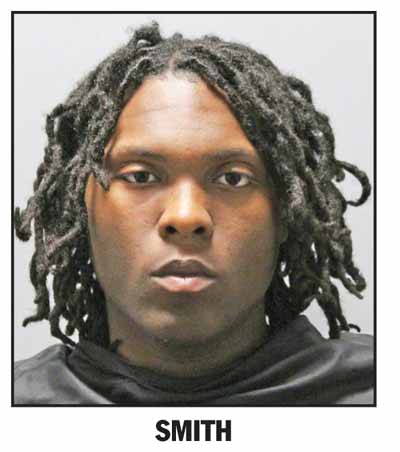 that someone had been shot in the 300 block of Jericho Ridge Trail.
that someone had been shot in the 300 block of Jericho Ridge Trail.
Upon arrival, deputies found a 55-year-old man with an apparent gunshot wound to the torso,
You must be logged in to view this content.
Subscribe Today or Login
Blue Flame show off new offensive scheme in first spring under Reynolds
By Bru Nimmons
Sports Editor
bnimmons@thepccourier.com
PICKENS — Following an offseason of change, the Pickens community got its first look at the Pickens High School football team under first-year head coach James Reynolds during the Blue Flame’s annual spring game May 23.
With so much turnover as Reynolds has revamped things early on in his tenure, the Blue Flame’s new leader was just proud of how the team
You must be logged in to view this content.
Subscribe Today or Login
Durrah happy with Easley’s spring efforts
By Eugene Jolley
Courier Sports
news@thepccourier.com
EASLEY — The Easley Green Wave capped off spring practice with an exciting spring game May 19, won by the Green team (defense), 51-43.
“I thought it was a pretty good day,” Easley coach Jordan Durrah said. “I thought we were able to run the football. I thought we were able to 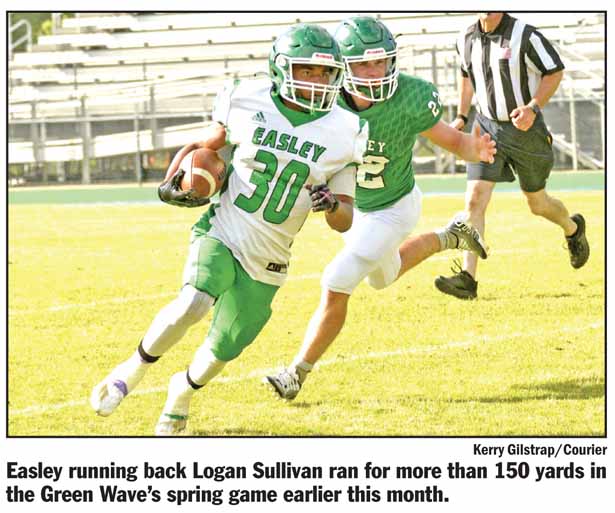 stop the run. There were a lot of explosive plays. The defense did a really good job of creating negative plays. It was good to see tackles for loss and some sacks, and that is
stop the run. There were a lot of explosive plays. The defense did a really good job of creating negative plays. It was good to see tackles for loss and some sacks, and that is
You must be logged in to view this content.
Subscribe Today or Login
Daniel defense turns heads in spring
By Bru Nimmons
Sports Editor
bnimmons@thepccourier.com
CENTRAL — After two weeks of practice, the Daniel football team finished up its spring session on May 19 with the annual Blue-Gold spring game.
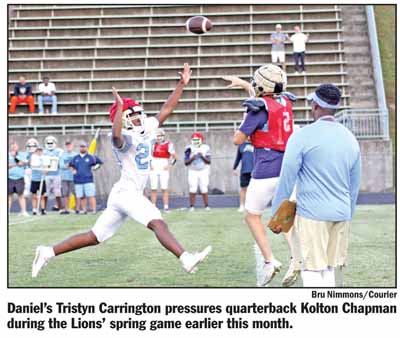 In the scrimmage, the Daniel defense looked more than ready for another stellar season, while the Lions still have plenty of questions to answer offensively.
In the scrimmage, the Daniel defense looked more than ready for another stellar season, while the Lions still have plenty of questions to answer offensively.
From the start of the day’s action, it was apparent that the defense had the advantage, with Ty Plumblee and Tristyn Carrington each sacking Kolton
You must be logged in to view this content.
Subscribe Today or Login
Rogers golf tourney scheduled for June
PICKENS — The 19th annual Charles F. Rogers Scholarship Fund Golf Tournament is scheduled for Saturday, June 10.
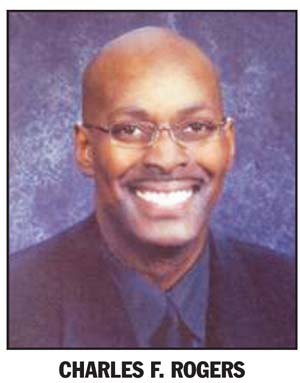 The tournament, which annually benefits a male and female senior basketball player from Pickens High School planning to attend a university, college or technical school, is set to kick off
The tournament, which annually benefits a male and female senior basketball player from Pickens High School planning to attend a university, college or technical school, is set to kick off
You must be logged in to view this content.
Subscribe Today or Login
Semper Fi Barn opens to visitors on Memorial Day
By Riley Morningstar
Courtesy The Journal
rmorningstar@upstatetoday.com
CENTRAL — More than 50 people passed through the Semper Fi Barn in Central to pause for reflection on Memorial Day.
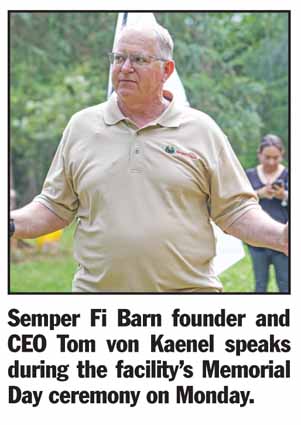 CEO and founder Tom von Kaenel opened the place of respite for veterans, where they can relax and stay at the
CEO and founder Tom von Kaenel opened the place of respite for veterans, where they can relax and stay at the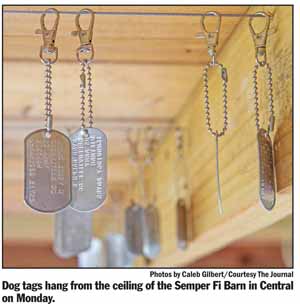 barn for up to three days at no charge, in March.
barn for up to three days at no charge, in March.
“We’ve opened up the barn for everybody,” he said, calling Memorial
You must be logged in to view this content.
Subscribe Today or Login
County roads on DOT paving list
By Jason Evans
Staff Reporter
jevans@thepccourier.com
COUNTY — More than 15 miles of roads in Pickens County are slated to receive work from the South Carolina Department of Transportation.
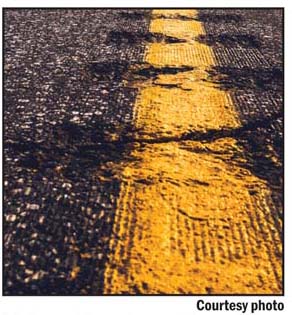 On May 18, SCDOT’s Commission approved the agency’s 2024 Pavement Improvement Program.
On May 18, SCDOT’s Commission approved the agency’s 2024 Pavement Improvement Program.
The 2024 program adds another $775 million to the $2.8 billion previously invested in paving improvements across the state since the agency’s Strategic 10-Year Plan was implemented, according to a release from SCDOT.
“When we implemented the Strategic 10-Year Plan in 2018, we set out to make significant
You must be logged in to view this content.
Subscribe Today or Login
A time to remember and respect
This is a week when we honor those who died in battle for our country.
There was a time when society seemed to be more sensitive and compassionate about casualties of war, but today there are many distractions 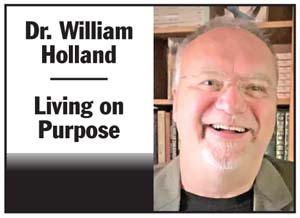 that cause the mind and conscience to skip over what is important. Another example is the neglect to teach young children about who God is. Nevertheless, some people might not realize there is a distinction between Memorial Day and Veterans Day.
that cause the mind and conscience to skip over what is important. Another example is the neglect to teach young children about who God is. Nevertheless, some people might not realize there is a distinction between Memorial Day and Veterans Day.
Memorial Day commemorates the men and women who died while serving in the United States armed forces, particularly those who died in battle or as a result of wounds sustained in battle. In other words, the purpose of Memorial Day is to memorialize the veterans who made the
You must be logged in to view this content.
Subscribe Today or Login


